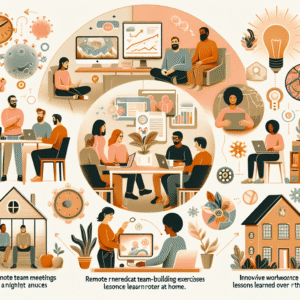How AI-Powered Tools Are Transforming Small Business Operations in 2025

How AI-Powered Tools Are Transforming Small Business Operations in 2025
In 2025, artificial intelligence (AI) is no longer a buzzword reserved for big tech companies—with advances in accessibility and affordability, AI-powered tools are now at the heart of daily operations for small businesses. The wave of automation, data-driven insights, and customer-centric enhancements has allowed even the smallest enterprises to compete, innovate, and thrive like never before.
The AI Advantage for Small Businesses
Historically, small businesses faced hurdles in adopting cutting-edge technology due to cost, integration complexities, and lack of specialized personnel. However, the emergence of user-friendly, plug-and-play AI services has changed the narrative. Cloud-based AI platforms, increasingly tailored for non-experts, enable entrepreneurs to harness the power of data analytics, natural language processing, and machine learning with minimal setup.
But how exactly are AI-powered tools driving transformation across everyday business functions in 2025? Here’s a closer look at some key areas:
1. Smart Automation and Workflow Simplification
Mundane, repetitive tasks used to tie up hours of valuable labor. Now, AI-powered workflow automation tools handle everything from invoice processing and appointment scheduling to data entry and inventory management. Voice-activated assistants and AI chatbots manage routine inquiries, automate order tracking, and even perform basic troubleshooting—freeing up staff to focus on strategic tasks.
2. Personalized Marketing and Customer Engagement
AI tools in 2025 have revolutionized how small businesses reach and retain their audience. Advanced algorithms analyze customer behavior and preferences in real time, enabling hyper-personalized email campaigns, dynamic website optimization, and targeted social media ads. AI-powered CRM (Customer Relationship Management) platforms recommend the best action for each customer, whether it’s a special offer or a timely follow-up. As a result, businesses build stronger loyalty and see higher conversion rates.
3. Data-Driven Decision Making
Small business owners now make informed decisions at the speed of thought, thanks to affordable AI analytics tools. These platforms integrate with existing sales, finance, and operational systems to provide real-time dashboards and forecasts. Predictive analytics—once exclusive to larger corporations—now offer small businesses insights into sales trends, inventory needs, and incoming market shifts. With actionable data at their fingertips, companies can stay agile and competitive.
4. Streamlined Hiring and HR Processes
Recruitment and employee management have seen profound changes due to AI integration. Automated applicant tracking systems sift through resumes, conduct initial screenings, and schedule interviews. AI-driven performance analytics help owners identify skill gaps, improve team productivity, and enhance retention by matching employees to roles where they thrive. This brings efficiency and objectivity to what were once highly manual processes.
5. Enhanced Security and Fraud Detection
As cyber threats evolve, so do defense mechanisms. AI-powered cybersecurity tools continuously monitor network activities, flag unusual transactions, and respond to vulnerabilities in real time. Small retail shops now deploy facial recognition for secure payments, while service-based businesses use AI to spot suspicious account activity. These measures are crucial in an increasingly digital economy, and AI makes top-tier protection accessible without a full-time IT department.
6. Smarter Supply Chain and Inventory Management
Managing stock and supply chains has traditionally been a guessing game, but AI’s predictive capabilities eliminate much of the uncertainty. Integrated systems monitor sales velocity, supplier timelines, and external factors like weather or market trends. This information helps businesses maintain optimal inventory levels and avoid both shortages and excess. The result: improved margins, happier customers, and less waste.
Barriers Lowered, Opportunities Expanded
The biggest shift in 2025 is that AI no longer requires deep technical knowledge or vast resources. Most AI-powered small business tools are cloud-based, with intuitive interfaces and affordable subscription models. Many offer “AI as a Service,” bundling setup, updates, and support into simple monthly fees. This accessibility levels the playing field and allows small enterprises to finally act on bold ideas with technology once reserved for multinationals.
Looking Ahead: The Human Touch Remains Essential
While AI automates and elevates much of daily operations, success still hinges on the human elements of entrepreneurship: creativity, empathy, and adaptability. The small business owners thriving in 2025 are those who blend technological prowess with personal connection. By freeing owners and employees from routine work, AI unlocks more time for innovation, community building, and customer relationships.
Conclusion
As AI-powered tools continue to evolve, their role in redefining small business operations in 2025 is unmistakable. From streamlined workflows to smarter marketing and better security, artificial intelligence is not only making small businesses more efficient but also empowering them to dream bigger. By embracing these transformative technologies, tomorrow’s small business leaders are poised for unprecedented growth and resilience in an increasingly automated world.
* The post is written by AI and may contain inaccuracies.


